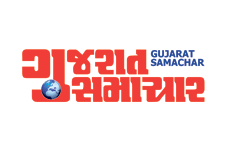Veterans have been providing vital assistance to the country’s frontline workers ever since the outbreak of the coronavirus pandemic. From delivering essential supplies to those shielding and vulnerable, building the Nightingale Hospitals, delivering PPEs to frontline workers, and to those working in mortuaries, they have worked side by side the frontline workers throughout the pandemic. Many have also helped to set up mobile testing sites, allowing them to run smoothly and safely. Many of these transferable skills have been learnt by the veterans during their service years.
Michelle Partington joined the Royal Air Force (RAF) when she was 19. After five years of training she became the first ever female medic to serve on the frontline with the RAF, serving in three tours in Afghanistan between 2009 and 2012.
Michelle told Gujarat Samachar, “People didn’t think a female could be a frontline medic, which made me even more determined. Before Afghan I was scared of the dark but there, I was on foot patrols for three or four days at a time, sleeping out in the open, visiting compounds, doing vehicle checks, on stag at night.”
In 2011-12, Michelle served with the Medical Emergency Response Team (MERT) and flew countless helicopter trips to rush critically injured soldiers and civilians to the hospital. She suffered from Post-Traumatic Stress Disorder (PTSD) when she got back.
Describing the tour, she said, “Halfway through the tour things went horribly wrong.
“As a paramedic you go off the back of the helicopter to retrieve the casualties and there were a couple of combat situations where we were on our bellies under fire. Halfway through that tour I realised I didn’t care if I survived. When I got back, I would get really angry, then be in tears, so I got sent to the doctors and I was diagnosed with PTSD. They medically discharged me in September 2015.”
When Michelle returned home, she tried working as a civilian paramedic, but found that her combat experiences were in sharp contrast to a civilian setting, “When you’ve seen kids with their legs blown off and you’ve got somebody in front of you who’s phoned for an ambulance because they’ve dislocated their finger… I told them what I thought! Which was not good.”
So instead, using the leadership and communication skills she picked up at RAF, she founded her own company Mentis Training & Consultancy, to help people whose mental health affects their ability to work. They provide one to one mediation for people who want to stay at work but are struggling, or those who are off sick but want to go back to work. “I’ll never be a millionaire because I tend to give most courses away for free,” said Michelle.
It was in this new, community-focused role that Michelle signed up with RE:ACT, which is a network of veterans, who volunteer as crisis responders. Usually RE:ACT sends veterans to disaster zones. But this year unfortunately, the disaster was everywhere.
Michelle said, “I began working as a housing support officer for the Salvation Army and the YMCA, many of whose staff were furloughed or self-isolating. A pub in St Helens kindly put me up and when I wasn't on my housing services shift, I was doing food deliveries for them to key workers. It was hard, but it was a nice experience.”
But having been a sergeant in the RAF, Michelle was also given the additional role of leading a team of veterans looking after the homeless at a hotel.
“These people who weren’t as compliant. Some had substance abuse problems, which adds an element of danger. So, I was there as muscle. That’s how I joked about it with the other veterans. There was some navy and some army, and you had the typical banter between servicepeople. The YMCA in particular said that they felt really safe knowing they had the support from us.”
Michelle believes that veterans are the right people to call on in a crisis because they are used to it. She added, “When we deploy, we just think, right, let’s get our heads in it.
“We’ve had the training, we’ve got the leadership, we know how to cope within ourselves and to look out for each other. We are each other’s strength and that comradeship never leaves you.”
Operation RE:ACT has:
Provided mortuary care for over 2,500 deceased patients
Installed over 1,000 hospital beds
Distributed over 5m PPE items
Supported/delivered over 1.5m meals
Conducted over 4,000 wellbeing and safety checks for isolated/vulnerable people
Supported a total of 62 hospitals
Recruited nearly 6,000 new veteran volunteers
Completed over 55 tasks in collaboration with the NHS, local authorities, or other charities/organisations.



